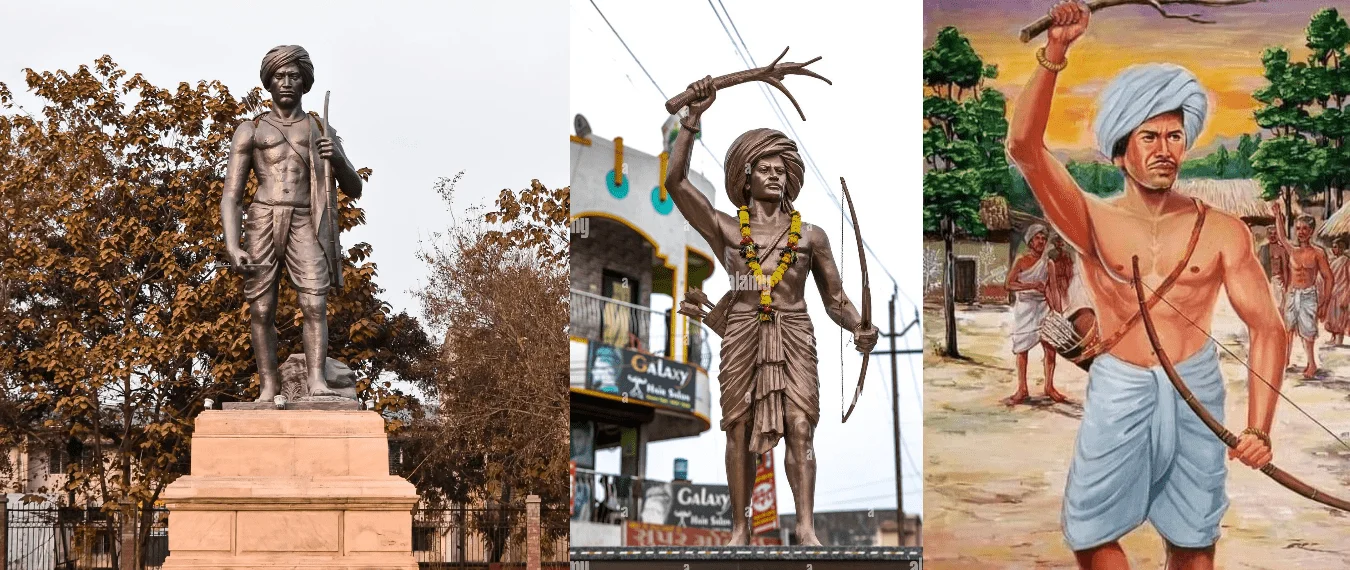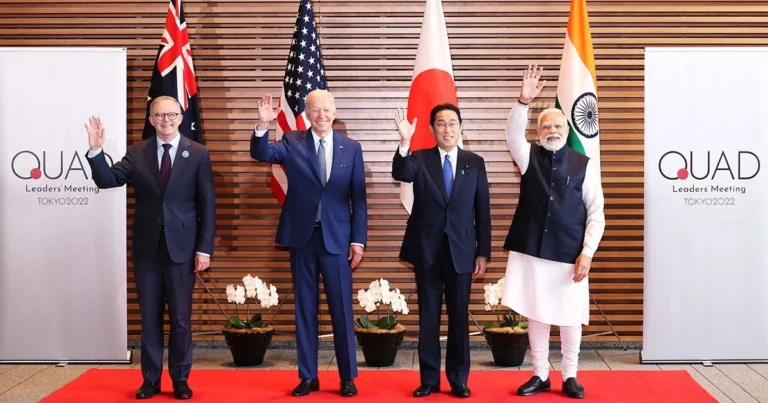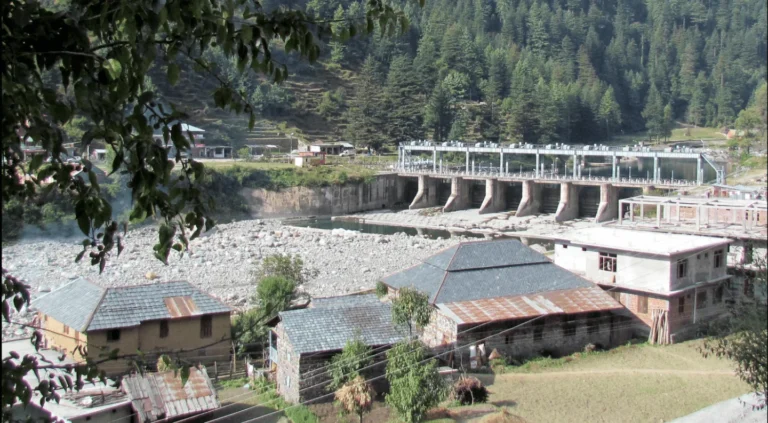Birsa Munda
Birsa Munda (1875–1900) was a significant tribal freedom fighter, religious leader, and folk hero from the Munda tribe in Jharkhand, India. He played a crucial role in mobilizing the tribal communities against British colonial rule and exploitation, particularly during the late 19th century. His influence is especially remembered in the regions of Jharkhand, Bihar, Odisha, and West Bengal. Birsa’s leadership was pivotal in the formation of a distinct tribal identity and the fight for the rights of the Adivasis (indigenous people) against oppressive policies.
About Birsa Munda
Early Life
- Birth: Birsa Munda was born on November 15, 1875, in Ulihatu, a village in the then Bengal Presidency (now in Jharkhand). He belonged to the Munda tribe, which practiced agriculture and lived in the forested regions of Chotanagpur plateau.
- Education: Though Birsa did not receive formal education for long, he was exposed to Christian missionary education when he attended a missionary school in Chaibasa. However, he eventually rejected Christianity and returned to his roots, advocating for a return to the traditional tribal way of life.
Ulgulan (Rebellion)
Birsa Munda is most remembered for leading the Munda Rebellion, or Ulgulan (meaning “The Great Tumult”), against the British authorities and exploitative landlords in the late 1890s.
- Context: The Mundas and other tribal communities in the Chotanagpur region were under tremendous pressure due to the British colonial system of land taxation and the zamindari system (landlord system). The British policy allowed non-tribal landlords (Dikus) to take over tribal lands, leading to the exploitation of the Adivasis. This resulted in the dispossession of tribal lands, forced labor, and the erosion of their traditional way of life.
- Leadership and Revolt: Birsa emerged as a spiritual and political leader for his people. He called for the restoration of tribal lands and traditional rights. Under his leadership, the Mundas revolted against the British and the landlords, demanding an end to forced labor, unfair taxation, and the restoration of the tribal system of land ownership. This revolt is referred to as the Munda Rebellion of 1899-1900.
- Spiritual Leader: Birsa was also a spiritual figure and a reformer. He claimed to have divine powers and projected himself as a prophet sent by God to liberate the Mundas. His movement, known as Birsait, urged people to give up superstitions, alcoholism, and to stop paying rent to the zamindars. He preached about the protection of tribal identity, culture, and autonomy.
- Symbol of Resistance: The Ulgulan spread rapidly across tribal regions, and Birsa’s charismatic leadership gained him a large following. The British government was alarmed by the scale of the rebellion, and several battles were fought between the Mundas and British forces. Birsa’s followers attacked police stations, churches, and colonial symbols of oppression.
Arrest and Death
- In 1900, Birsa Munda was captured by the British. After a brief but intense resistance, Birsa was arrested in Jamkopai forest and died mysteriously in British custody on June 9, 1900, at the age of 25. His death was officially attributed to cholera, but many believe he was poisoned or died due to mistreatment in jail.
Legacy
- Cultural Hero: Birsa Munda’s life and struggle against British exploitation and oppression made him a symbol of tribal identity and resistance. He is honored as a cultural hero and a freedom fighter among the tribal communities of Jharkhand and other states.
- Birsa Munda’s Impact on Tribal Rights: The legacy of Birsa Munda influenced tribal rights movements and laws protecting tribal lands. The British, in response to the Munda Rebellion, passed the Chotanagpur Tenancy Act of 1908, which prohibited the transfer of tribal land to non-tribal people, protecting the land rights of the Mundas and other tribes.
- National Recognition: Birsa Munda is celebrated as one of India’s freedom fighters, though his struggle was primarily focused on tribal autonomy and land rights. His contributions are acknowledged across India, and November 15, his birth anniversary, is celebrated as Jharkhand Foundation Day (as Jharkhand was created in 2000).
- Inspiring Future Generations: His resistance to colonialism, feudal landlords, and his advocacy for tribal rights have made him an inspiration for many tribal and indigenous movements in India. He is revered not only as a revolutionary leader but also as a protector of tribal identity and culture.
Commemoration
- Numerous institutions, including Birsa Institute of Technology and Birsa Agricultural University, are named after him.
- Statues and memorials in cities like Ranchi commemorate his legacy.
- The Birsa Munda Airport in Ranchi is named in his honor.
- The Government of India has also issued stamps and built memorials to honor Birsa Munda’s legacy.
Birsa Munda’s life was short, but his contributions to the struggle for tribal rights and freedom from British oppression remain significant. He is regarded as one of the earliest and most powerful voices advocating for the rights of indigenous people in India. His legacy continues to inspire tribal movements, and he is remembered as a revolutionary figure in India’s freedom struggle, especially in the tribal heartlands.
Related to Birsa Munda
- PM Modi launched Dharti Aaba Janjatiya Gram Utkarsh Abhiyaan
- a package aimed at scheme saturation on tribal-majority villages across 550 districts.
- Involves implementation of existing schemes in 63,000 Scheduled tribe-majority villages.
- Named in reference to Birsa Munda, the package includes 25 interventions.



